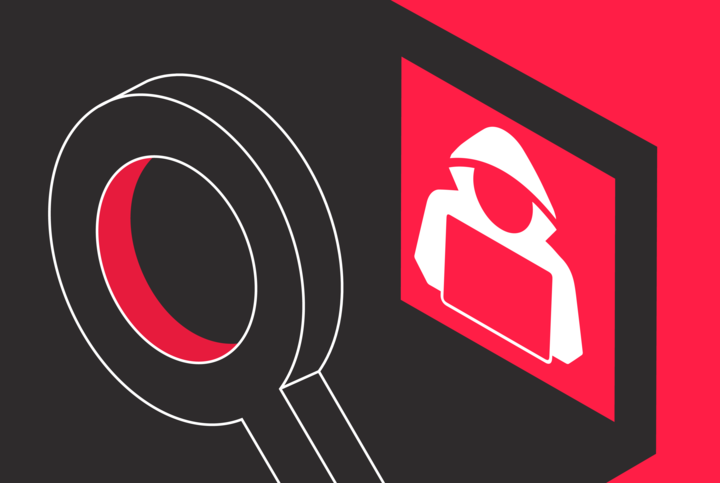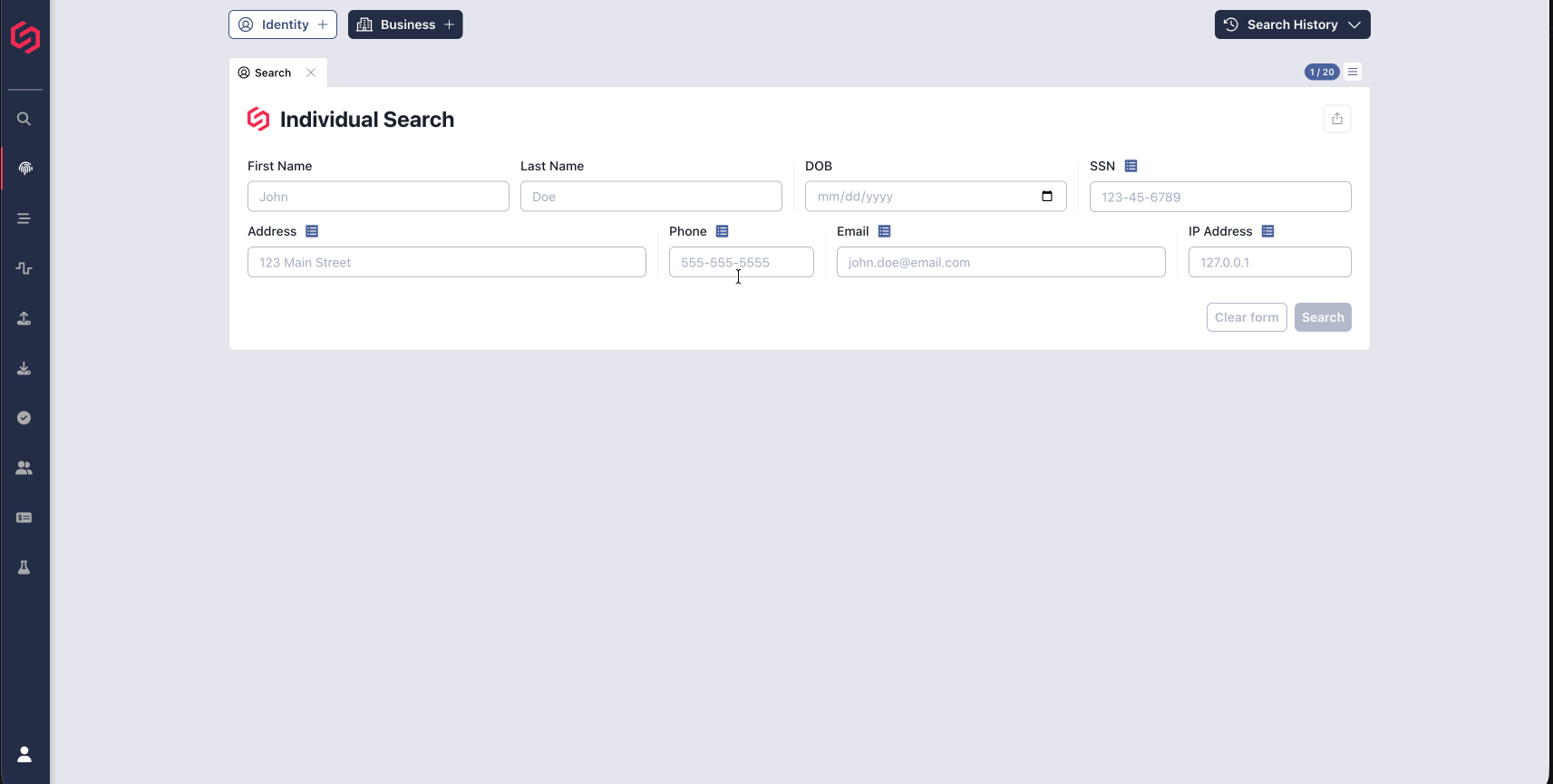Blog post
Hands-On with the CPN Economy, Part 1
David Maimon
Published
December 19, 2024

Credit Profile Numbers (CPNs, also sometimes called Credit Privacy Numbers) are nine-digit numbers that resemble SSNs and are typically used in place of SSNs on things like credit, rental, and utility applications. But unlike SSNs, CPNs aren't issued by any government body or institution. For the most part, they are entirely fabricated numbers made up by fraudsters that match the patterns of real SSNs. In some cases, these made-up numbers end up being the same as somebody's real SSN, meaning that the use of a CPN isn't always just synthetic fraud — there is also sometimes an element, intentional or not, of identity theft.
CPNs are often marketed as secret weapons for building or repairing credit — a seemingly too-good-to-be-true offer for anyone struggling with financial challenges. But this shiny facade of promises is a lie — there is no such thing as a legitimate CPN, and using one on a credit application is fraud. CPNs are highly sought-after commodities not just for consumers, but also among fraudsters who rely on stolen identities and identity elements for their operations.
Despite their widespread appearance on clearnet, darknet, and text messaging platforms, we know surprisingly little about the broader CPN economy. What's the real quality of the CPNs being sold? Do the vendors deliver as promised, or are buyers left empty-handed? And who are the individuals behind these CPN operations, driving this lucrative but illegal industry?
To answer these questions and pull back the curtain, I'm diving deep into the CPN economy and, in fact, getting hands-on. We'll explore this underworld in a series of blog posts. This first post will focus on the CPN creation guides available online and profiling one of their creators. The second blog will focus on market analysis of a small sample of CPN vendors, and the third blog will assess the quality of some of the CPN packages which are offered for sale online.
The Lure of CPN Creation Guides
CPN tutorials, often sold as webinars, PDF guides or videos, promise to teach individuals how to use a CPN to escape bad credit and start fresh. These guides target vulnerable audiences — individuals with poor credit scores or in financial distress — by offering what seems like a shortcut to a "clean slate" solution.
CPN tutorials typically start with the basics, explaining to their audience what a CPN is and how it can be used. Most tutorials outline how to use a CPN to apply for loans or credit cards, which means using the CPN in place of an SSN on the credit application. This is fraud, and it is illegal, but unsurprisingly the guides do not mention that. Instead, readers are led to believe they're simply taking advantage of a legitimate loophole rather than engaging in fraud.
CPN guides are sold on clearnet, darknet, and text message environments (see images below), and vary in price depending on the vendor reputation and the guide's comprehensiveness. However, many fail to highlight any of the risks — criminal charges, legal trouble, and the fact that actually using a CPN is fraud.
 CPN guides for sale on Barnes & Noble's website and on Telegram.
CPN guides for sale on Barnes & Noble's website and on Telegram.
Getting to Know a Vendor: Meet "CPN Guy"
"CPN Guy" is a vendor whose flashy promises caught my attention. In a 30-day "wealth-building" scheme detailed in a PDF tutorial, he outlines how to generate a CPN, create an associated profile, and use it to build a high credit score. The guide includes:
- Step-by-step instructions: Generating a CPN and marrying it with a new address, phone and email in public credit records.
- Credit building techniques: Adding tradelines from primary and authorized users, and tips for securing high-limit credit cards and loans.
- Advanced strategies: Leveraging "zombie debt" to simulate a credit history.
- Additional resources: Links to tools, websites, and services to facilitate each step, including resources for credit monitoring, rent reporting, and tradeline purchases.
CPN Guy claims his method enables users to secure high-limit credit cards, personal and business loans, and luxury rentals. While presented as a resource for financial education, the document discusses practices that are almost certainly illegal.
In addition to the detailed information about CPNs, the document directs readers to a website hosted on the clearnet. Interestingly, a few days after my initial exploration, the website was no longer accessible, so to complete my investigation, I relied on archived images of the website available through the Wayback Machine.
On this website, the author claimed to reveal the exact system they used to generate over $4.8 million in less than a year. To learn about this system, visitors were invited to purchase access to the author's insights for $497. This fee purportedly granted access to various resources, including credit repair guides, a CPN secrets webinar, a playbook for using aged and shelved corporations to facilitate fraud, and a list of credit cards and lenders. The website also featured testimonials from satisfied customers alongside various images and videos showcasing the vendor in what appears to be an opulent home, surrounded by luxury cars and extravagant jewelry. A visit to the company Telegram channel provided more of these images:
 Upon clicking the payment button, users were redirected to a page that displayed the company’s contact information, including an email address and a telephone number.
Upon clicking the payment button, users were redirected to a page that displayed the company’s contact information, including an email address and a telephone number.
Following the Trail, Paying a Visit
CPN Guy's online presence paints a picture of success: luxury goods, high-end cars, and happy customer testimonials. But digging deeper reveals an even more suspicious side to his operation.
Using our investigative tools, we traced the vendor to Georgia, where he operates under a seemingly legitimate company registered in his name, even possessing a DUNS number. The company’s listed address, which is available in public records, turned out to be near enough for me to visit. However, as shown in the photos, this address appears to be nothing more than a shell, possibly used for the purpose of receiving mail:
A review of CPN Guy's public records reveals an extensive criminal history, including charges of theft, identity theft, assault, and cruelty to children. In SentiLink's data, we see evidence of him practicing what he preaches. For example, there are multiple SSNs linked to his identity and he has a history of using a family member's identity to submit fraudulent bank applications, showcasing the classic first-party identity fraud playbook.
Unanswered questions
This investigation raises critical questions: Are vendors like CPN Guy the norm in this illicit industry? How successful are these vendors in securing the benefits they promise their customers, and do CPNs actually deliver on their claims?
These questions will be explored in greater detail in the next report in this series where we'll see if we can uncover more about the success, or failure, of CPN schemes and the tactics driving this dark economy. In the meantime, check out this article from my SentiLink colleague Johnny Bravo on the use of CPNs in the apartment rental market.
Related Content
.png)
Blog article
February 20, 2026
Romance Fraudsters Have Found a New Target: Your Home Equity
Read article
Blog article
February 19, 2026
Introducing SentiLink Intercept: Precision Tools for High Stakes Fraud Decisions
Read article
Blog article
December 2, 2025